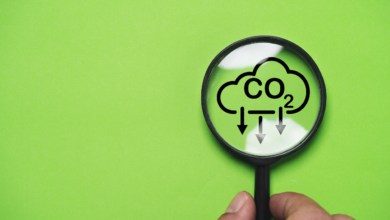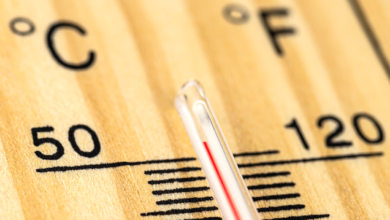The Caribbean sponges tell us that we have already exceeded 1.5 degrees of global warming

According to the IPCC, we will reach +1.5 degrees of global warming only in 2030-2032
(sustainabilityenvironment.com) – The Earth started warming up because of human activities 80 sooner than we thought, around 1860. This information is contained in the “skeletons” of a species of coral sponges in the Caribbean Sea. From this analysis, an international team of researchers has reconstructed the changes in water temperature in the last 300 years. And if from 1700 to the mid-nineteenth century the values remained substantially identical, oscillating by just 0.1°C, from 1860 onwards there is an acceleration. That means we would have gone over 1.5 degrees of global warming four years ago.
The secrets of coral sponges
The scope of the study, published in Nature, is devastating. If the researchers have done the calculations well and their methodology captures a neglected trend of global warming so far, we need to rewrite all the values of the temperature increase. As a result, today we would have far exceeded the more ambitious objective of the Paris Agreement and we will soon also exceed the threshold of 2°C.
read also Global warming in the Arctic takes us over 1.5 to 5 years before
From the analysis of sclerospongiae one would notice that the increase in the temperature of the ocean and the earth’s air overlaps until the end of the 20th century, when the earth begins to warm up at a rate almost double that of the most superficial layers of the oceans. Looking back, the authors of the study calculated that “global warming was already 1.7 ± 0.1°C above pre-industrial levels in 2020“.
Have we gone over 1.5 degrees of global warming yet?
According to the data considered the most reliable so far, 2020 was the 2nd hottest year ever recorded, with a global warming of about +1.25 °C compared to the average of the period 1850-1900. On par with 2016 and second only to 2023, which closed – according to the EU Copernicus system – with +1.48°C. According to the latest estimates of the IPCC, the world should have exceeded 1.5 degrees of global warming only at the beginning of the 1930s (2030-2032 is the median estimate). Other more recent studies, of 2023, anticipate the date at most to 2029.
We’ve already gone over 1.5°C, so. But that’s not all. “Our result is 0.5 ºC higher than IPCC estimates, with 2 ºC of global warming expected by the end of 2020, almost two decades ahead of schedule,” the research points out. The IPCC assumes that in a modest emission mitigation scenario – the trajectory we are on now – this threshold would be exceeded by around 2052.
But the results of the research are met with considerable scepticism by the scientific community. The main point is this: how reliable is the “signal” of global warming of coral sponges? For the authors it is: their analysis “sees” the sharp drop in global temperature around 1815, coinciding with the eruption of the Tampora volcano in Indonesia that upset the global climate for a few years.
But even so, some climate scientists say, can we throw away the systematic surveys conducted so far based on a single evidence, coming from a single species in a single region of the world? In other words, does the trend recorded by coral sponges really have a global value, or does it accurately describe only what happened in the Caribbean Sea?





